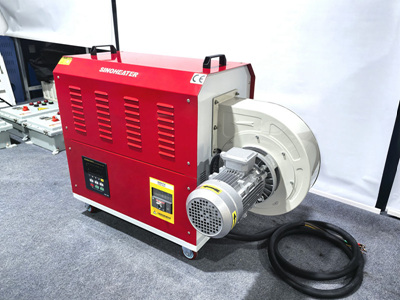The rust prevention and maintenance of the casing of the hot air blower are the keys to ensuring its long-term stable operation and extending its service life. The following are some effective rust prevention and maintenance tips:
First, rust prevention techniques
Select corrosion-resistant materials
When purchasing a hot air blower, give priority to models with a stainless steel casing or those that have undergone special anti-corrosion treatment (such as electrostatic spraying of anti-corrosion paint). Stainless steel material has excellent oxidation resistance and corrosion resistance, and can maintain stability for a long time in damp or corrosive environments.
Surface coating protection
For the purchased hot air blower, if the shell material is prone to rust, it can be considered to apply a layer of corrosion-resistant coating on the surface of the shell, such as ZS-1031 wear-resistant and anti-corrosion coating. This coating has a high hardness and excellent resistance to acid, alkali and salt spray, effectively protecting the casing from corrosion.
Clean and dry regularly
Regularly clean the outer casing of the hot air blower to remove dust, oil stains and other dirt, and prevent them from combining with moisture to form corrosive media. When cleaning, mix warm water with neutral detergent and gently wipe with a soft cloth or sponge. After cleaning, dry the moisture with a clean cloth to ensure the shell is dry.
Avoid damp environments
Try to place the hot air blower in a dry and well-ventilated environment to avoid prolonged exposure to damp or corrosive gases. If it must be used in a humid environment, it is advisable to install a moisture-proof cover or protective cover to reduce the erosion of moisture on the casing.
Passivation treatment
For shells made of stainless steel, passivation treatment can also be carried out. The passivation film on the surface of stainless steel is made denser, more uniform and thicker through chemical methods, enhancing its corrosion resistance.
Second, maintenance tips
Regular inspection and maintenance
Regularly inspect the casing, power cord, plug and other components of the hot air blower to ensure they are in good condition. If scratches, depressions or signs of corrosion are found on the shell, it should be repaired or replaced in time.
Storage Precautions
When the hot air blower is not in use for a long time, it should be stored in a dry and well-ventilated place and covered with a plastic bag or dust cover to prevent dust and moisture from entering.
Avoid collisions and scratches
When moving or handling the hot air blower, handle it with care to avoid the casing being bumped or scratched. If the shell is damaged, it should be repaired in time to prevent corrosive media from entering.
Follow the user manual
Operate and maintain the hot air blower strictly in accordance with the user manual to avoid damage to the casing or accelerated corrosion caused by improper use.
In summary, by choosing corrosion-resistant materials, applying surface coatings for protection, regular cleaning and drying, avoiding damp environments, passivation treatment, and conducting regular inspections and maintenance, the service life of the hot air blower can be effectively prolonged and its stable operation ensured.




